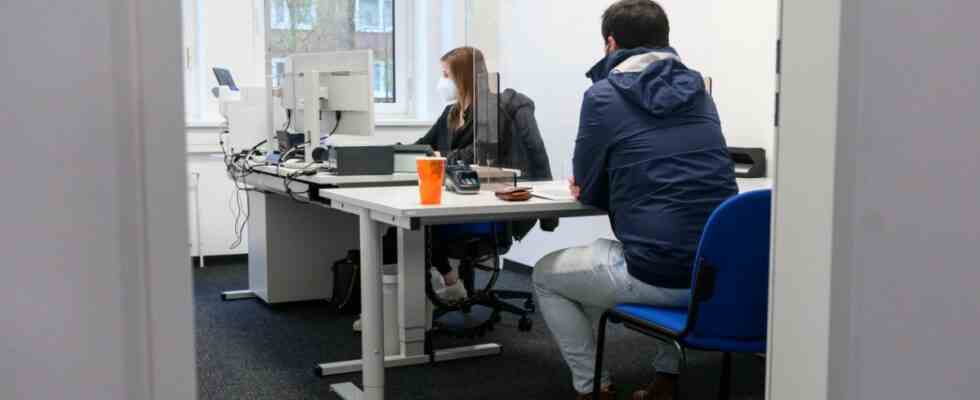Cooler offices, less light in the cities, doors closed: the Federal Minister of Economics wants to save gas by decree. Now the first drafts show what that means in concrete terms.
Whether someone works physically hard or not, whether sitting or standing – so far that has rarely made a big difference in German law. But next winter it will. Because if you work hard, according to a draft regulation from the Federal Ministry of Economics, you don’t need it that warm at work. And those who do most of their work while sitting should have it warmer than someone who does it “standing or walking”. This is what they look like, the details of the German energy saving plan.
Minister Robert Habeck (Greens) announced such restrictions in an interview with the SZ last week. Savings should also be made on the lighting of public buildings and posters. But the regulation, as the first draft shows, goes further. For example, the air temperature in the work rooms of public buildings should be heated to a maximum of twelve degrees Celsius when heavy physical work is carried out in the rooms. In the case of “medium-heavy work” it should be no more than 16 degrees if the work is done standing, and 17 degrees when sitting down. For light physical work, mainly standing, it can be 18 degrees Celsius, and 19 degrees when sitting. The latter presumably includes all forms of normal office work. Hospitals, retirement homes, day care centers and schools are exempt from the obligation.
Common areas such as corridors should no longer be heated at all, and where instantaneous water heaters hang in public buildings “whose operation is primarily intended for hand washing”, they should be switched off. These rules do not apply to social institutions either.
There should also be rules for businesses and households. Private pools can no longer be heated with electricity and gas. Agreements in rental contracts that require a minimum temperature in apartments should become ineffective, and at the beginning of the heating season all households should receive information about how much they use, what it could cost them in the future and what could be saved.
And there should also be a regulation for retailers: Close the door! “Keeping shop doors and entrance systems in retail business premises permanently open is prohibited,” it says in paragraph 10. The reason given is that heat could otherwise “escape uncontrolled” – and only “to allow customers to take a look in passing to grant the business premises and expenses.”

